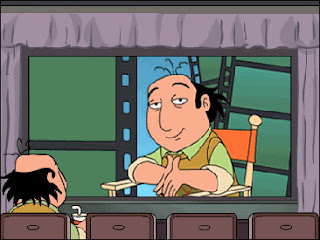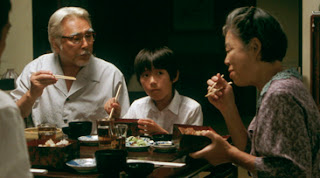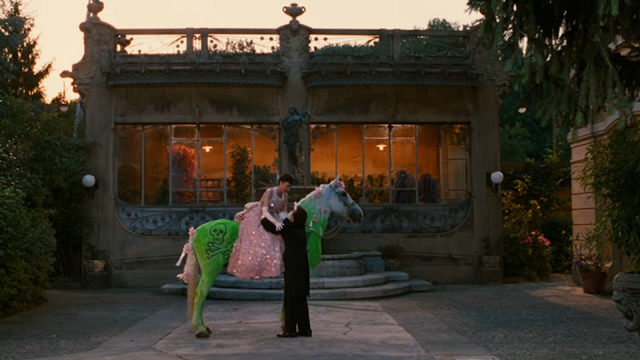Who Needs a Critic?
It has become increasingly popular, in our modern society, to view the role of the critic with more aggression than was previous. This comes mainly from the divergence of the critic from his audience. Our society today places emphasis on the individual, who need only surround him or herself with those of likeminded interests and opinions. Outside opinions are not welcome to the individual, who holds his or her beliefs to be the highest and most supreme authority. Often enough the individual believes they are the beacon of truth, transmitting a message of absolutes, which they apparently received from within their closed off adolescent experience.
The narcissistic hold on the public has been ever tightening with the onset of social networking sites and other web based social media, placing the individual in a position of influential power over others, without any proper understanding of that influence or power, and without the slightest credentials for what they are pushing. This issue could invariably circumscribe several topics, but we will contain it within the field of the critic as it pertains to us and our site. Herein, a film reviewer without proper credentials is not a critic, and provides not the slightest ounce of value to the motion picture medium.
With YouTube and Facebook, potentially amazing outlets for media and content of a higher caliber, the aforementioned individual has now become the center of his or her own universe. The attention span of an individual has declined so drastically that even a 10 minute YouTube video can be cumbersome to watch. In fact, some readers out there have failed to read this article into its third paragraph, pressing onward to another topic with similar disinterest in search of instant gratification. Regarding the 10 minute YouTube video, however, we are invariably brought around to our original point of discussion; the individual making the 10 minute video.
A search query for "movie review" will provide a cumbersome amount of results. The reviewing of a movie today consists of a once over and an opinion based rating. The reviewer watches the film once, and comments based on any number of preconditioned rules, or lack thereof. Perhaps they used a list of generalized questions, answers to which are numerical, and the end result is the averaging of those numbers together. Or perhaps the reviewer simply rambles on about how he "felt" during the screening, and what emotion he was left with when he walked away from it. So, what's wrong with that?
There's certainly a market for this type of review if, in the end, all you want is to know whether or not you're going to like that popcorn thriller. If, on the other hand, we are to hang on to future generations of artistic and influential pieces of motion pictures, we desperately need both critical analysis of film, and to care about what it is saying. Matthew Arnold, a 19th century poet and critic, wrote The Function of Criticism at the Present Time outlining the importance of the critic, saying, in effect, the art and the critic are two halves of a whole. In other words one cannot exist without the other.
I know what some of you are thinking. "Why do I care about any of this, and how does it apply to Transformers 3?" Basically this: Mainstream cinema has devolved to a handful of cookie cutter movies, often ending with more gunfire and explosions than have been used in all of our current war. Criticisms of these films have also devolved, satisfying the customer and not the art form. Criticism is not for the audience! It is for the art, intended to push it forward. not keep it stagnant. Simple movie reviews and opinionated columns from uneducated and untalented reviewers has placed our mainstream movie industry into a holding pattern.
Hollywood is too afraid to touch anything that is not a sequel, remake, or translation from an 80s cartoon, theme park ride, or a board game. The true works of art are being left to independent directors and producers, who are finding it increasingly more difficult to secure financing. Simplistic and mindless movie reviews, not pertaining to the critical analysis of a film, paralyze the system by convincing you to be disinterested in thought provoking cinema. Let's face it, you don't have any plans to see Mike Leigh's Another Year, and the studios know that. The American film industry is rapidly turning into postwar Japanese cinema.
Prior to WWII, Japan had some of the most prolific and influential directors in the world. They had an apprenticeship system which allowed new generations of film directors to learn from the wisdom of the old, all while working on set and gaining valuable experience. After WWII, however, the Japanese studios were too afraid, and financially incapable, to back the artistic directors anymore. Today you know Japanese entertainment for three things: anime, horror films, and pornography. This is slowly, and miraculously, changing, with directors like Hirokazu Kore-eda, whose film Still Walking, a poignant family drama, resembles the work of the late great Yasujiro Ozu.
If it sounds like I am being unnecessarily harsh, it's because I probably am. Don't get me wrong, I love movie reviews, but I in no way let my end-all to movie opinions land on the shoulders of one man. Instead I find it necessary to learn as much about the film before forming a conclusion. Quite simply open your ears to several commentators like Jim Emerson, Elvis Mitchell on his radio show The Treatment, and the ever great Roger Ebert. You should definitely check out Roger's Great Movies, where his film analysis is deeper, and the section he calls his "far-flung correspondents". This part of the site gives the American filmgoer a chance to understand movies from the perspective of film critics from around the world. Many of them are fascinating and fun to read -- I'm positive you will enjoy them. Stimulating film critiques such as these keep the public informed and the artists responsible. So sit back, light your pipe, and enjoy.
Keep it balanced!
Keep it balanced!
Coming soon: Schindler's List
p.s.
Lights, Camera, Jackson, the 11 year old film reviewer, is fascinating to listen to. While I don't take his opinions seriously, he is excited about movies and fun to watch. Check him out, but keep it balanced!
p.s.
Lights, Camera, Jackson, the 11 year old film reviewer, is fascinating to listen to. While I don't take his opinions seriously, he is excited about movies and fun to watch. Check him out, but keep it balanced!







Has the movies devolved or has the view watching them devolved so that directors now have to make crapp movies for crappy people? Could be both I guess.
ReplyDeleteBoth, as you suggest. The typical movie has about 10 minutes to draw the audience in before they get restless, and that's being liberal. If you watch movies from just a couple of decades ago you'll notice the pacing in storyline places the action at the end. Today most movies have to give the audience a snippet of action at the beginning, just so they'll stay in the seat.
ReplyDeleteMovies evolve in response to the audience. The studios makes what people are paying to see. So if anything/anyone is "devolving", its the audience.
However, the amount of "junk food" movies that exist is unparalleled, keeping moviegoers from a balanced choice. For example, my second most anticipated film of the year was "Black Swan", released two Fridays ago, but it still has yet to find its way to theaters near me (and I live in between L.A and San Diego). I'm not holding my breath for my number one choice either, "Biutiful", by Alejandro Gonzalez Innaritu. Because I can't get to see it, nor most others, Hollywood will not see the true number of people willing to attend intelligent cinema.
How unfortunate for all of. Thank you for the question, Will!